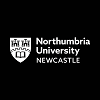Snabbfakta
-
- Newcastle upon Tyne
Ansök senast: 2024-11-09
Senior Research Assistant
ABOUT THE ROLE
We are seeking a highly motivated, organised and compassionate Senior Research Assistant to join our team. You will support the delivery of a project aiming to develop the care system to include arts-based approaches in the support of people who experience homelessness (PEH). Specifically, you will focus on coordinating the delivery of five work packages, with two research associates and a broader multidisciplinary team. You will organise workshops with a large number of external organisations, and regular team meetings. You will organise room bookings, catering and payments to individuals, as well as taking part in reporting and ensuring timely completion of tasks related to the five work packages. You will ensure that all ethical, risks and safeguarding procedures are rigorously followed.
For further information see the job description.
The role is 18.5 hours per week, fixed term until March 2027.
This role is exempt from the Rehabilitation of Offenders Act 1974 therefore the successful candidate will be subject to a Disclosure and Barring Service check. ABOUT THE PROJECTHomelessness, meaning people without a secure and stable place to live (including those in shelters, hostels, and temporary or unsuitable accommodation), is often the result of severe and multiple disadvantage, meaning people with experience of homelessness (PEH) have faced sustained periods of difficulty which are both a cause and a result of poverty, poor health, and inequality (NICE, 2022). To overcome homelessness, we need to make sure people have equal access to housing, healthcare, education, employment, and opportunities to grow, develop skills, and live healthy and fulfilling lives. Many health and social care providers, public services, and community-based organisations are committed to improving health and reducing health inequalities, yet despite their efforts homeless people often find themselves unable to access and engage with services that might be able to help them. Creative health approaches (art, crafting, cooking, gardening, sports, singing, reading, writing and more) recognise people as complex and multifaceted, with spiritual, emotional, mental, and physical needs. However, despite evidence showing the positive impact of creative initiatives, these assets have not typically been meaningfully included in the wider care system.
Funded by the UKRI, this project aims to grow the care system, so it includes creative health approaches and learns to support people better. It will be led by people with experience of homelessness, and using participatory methods, will be organised in five work packages to:
In addition to shaping policy and practice, findings will be shared using creative methods to amplify the voices of those experiencing homelessness and celebrate the strengths of individual and community assets.
ABOUT THE TEAMCo-lead by Dr Christina Cooper and Professor Monique Lhussier, the research project will be delivered by a multidisciplinary team bringing together researchers from Northumbria University and Newcastle University, practitioners from statutory and voluntary services, decision makers, and Experts by Experience from across the North East and North Cumbria area. The post will be working within the department of Social Work, Education and Community Wellbeing at Northumbria University, and within the Centre for Health and Social Equity (CHASE). CHASE aims to enhance the role of Northumbria university as an anchor institution that has a purposeful and explicit impact on inequalities. It houses a flagship interdisciplinary centre which undertakes research, education and knowledge exchange activities to promote health and social equity in the region and beyond. A core element of CHASE is the creation of a Community Engagement Hub. It cements already strong relationships with community partners and fosters an ethos of co-production to inform systematically our research questions and methods, dissemination and impact. ABOUT YOU
Applicants should hold a graduate level qualification in a relevant discipline. Knowledge of the contemporary debates and challenges relating to homelessness, creative health initiatives and multiple and complex needs is desirable. Evidence of project management experience is essential.



